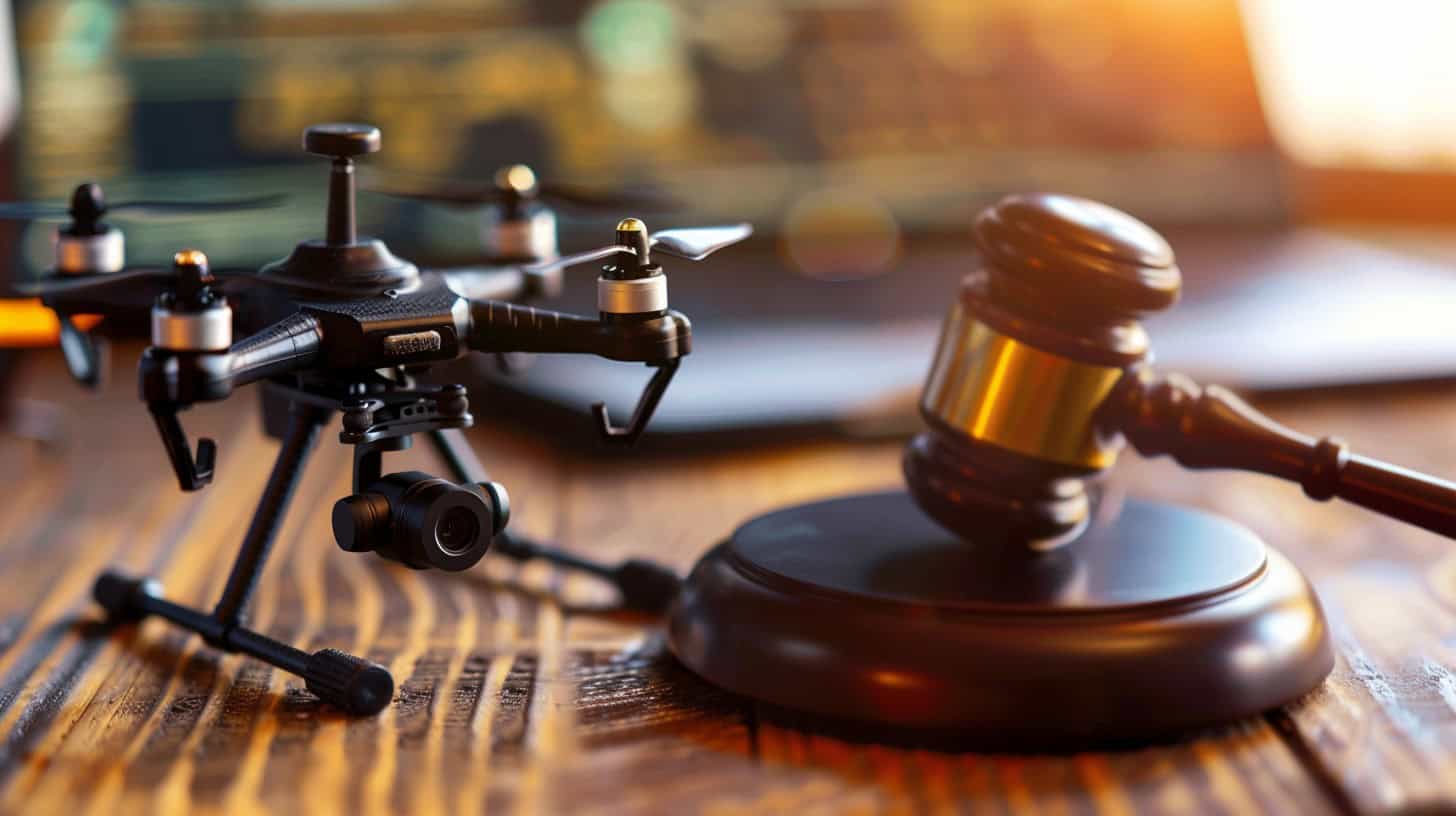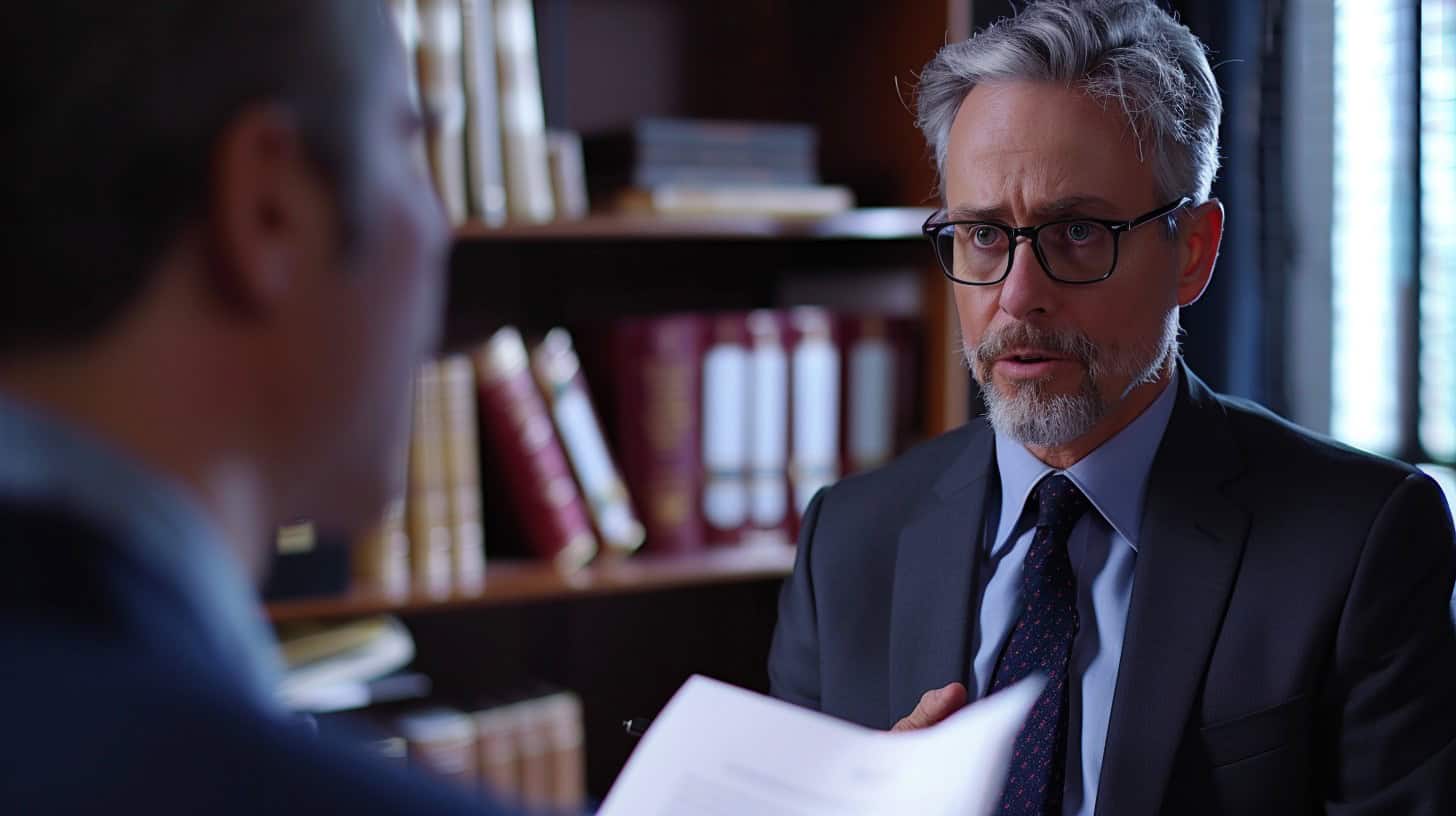Facing workplace issues and thinking about hiring an employment lawyer? Employment lawyers typically charge using hourly rates, flat fees, or contingency fees. This blog post will break down the costs involved, helping you understand what to expect financially.
Let’s get started—read on for insights.
Key Takeaways
Employment lawyers charge in different ways like hourly rates, flat fees, or contingency fees. How much they charge can depend on where you live, the lawyer’s experience, and how complex your case is.
Extra costs to think about include court fees and administrative expenses. These can add up quickly, so it’s smart to ask about them early.
You can manage legal costs by looking for free or low-cost services from legal aid groups or negotiating payment plans with your lawyer.
Table of Contents
Factors Affecting Employment Lawyer Fees

The price of an employment lawyer depends on a few things. First, if you’re hiring an employment lawyer in Los Angeles or another big city, it might cost more. According to Melmed Law Group, the experience and special skills of the lawyer also play a big role in setting the fee.
Influence of Lawyer’s Experience and Expertise
Lawyers with lots of experience and know-how often charge more. Their deep understanding helps them tackle tough employment law issues better.
This can mean higher costs for their services, but also stronger chances of winning a case.
Costs go up as lawyer expertise does because skilled lawyers know how to navigate the murky waters of legal battles effectively. They’ve seen it all – wrongful termination, contract disputes, and more.
These seasoned professionals use their knowledge to build strong arguments that could make a big difference in outcomes for tech workers or project managers facing legal hurdles. Next up, let’s talk about how where you live impacts lawyer fees.
Impact of Geographical Location
Geographical location plays a big role in what employment lawyers charge. Big cities often mean higher costs. For example, lawyers in California might ask for more money than those in smaller towns.
This happens because things cost more in big cities and there are many people needing help with job laws.
Lawyers use different ways to charge you—hourly rates, flat fees, or contingency fees depend on where they work. In busy places like California, the cost can also change based on how many lawyers are around and what kind of job law issues people have.
Next, we’ll talk about case complexity and how it affects costs.
Case Complexity and Its Effect on Costs
Moving away from location, the complexity of the case plays a big role in costs. Simple cases might only cost between $1,000 to $3,000. But if things get complex, you could be looking at anywhere from $5,000 to over $50,000.
From my experience, each step up in complexity means more time and work—like gathering evidence or dealing with employment laws that change a lot.
For example, if your case involves overtime issues under the Fair Labor Standards Act (FLSA) or complaints through the Equal Employment Opportunity Commission (EEOC), it gets more complicated.
More documents to review, and maybe even expert witnesses are needed. These steps make everything take longer and add to what you pay your lawyer. So remember, as the details pile up, so does your bill.
Employment Lawyer Billing Methods

Employment lawyers charge in different ways… Hourly rates, flat fees, and sometimes a mix. They might ask for a retainer up front or work on contingency—if they win your case, they get paid.
Hourly Rate Explained
Lawyers charge different rates based on their experience and where they work. Some lawyers might ask for $300 to $1,500 every hour. If a lawyer knows a lot about jobs and courts, they might charge between $250 and $500 each hour.
This means if your case takes many hours, the cost will add up fast.
Defense attorneys usually get paid by the hour, too. So, think about how complex your problem is before you decide to hire one. Simple cases might not take as much time or money as harder ones.
Knowing this can help you plan how much money you need for legal help.
Understanding Flat Fee Arrangements
Moving from hourly rates, flat fee arrangements stand out for their simplicity and predictability. Such a method means you pay a set amount for certain legal tasks. This could range from reviewing an employment contract to negotiating a severance package.
I once hired an employment lawyer on this basis and knew exactly what the bill would be upfront—no surprises.
Flat fees make budgeting easier since costs are clear from the start. For example, if a lawyer charges a flat rate of $500 to draft non-compete agreements, that’s all you’ll owe for that service—nothing more, nothing less.
From drafting settlement agreements to navigating ADA compliance, clients can find peace of mind in knowing the financial commitment required.
Flat fee arrangements took away my worry about spiraling legal costs during my case.
Retainers and Contingency Fees Overview
Lawyers often ask for a retainer fee upfront. This acts as a deposit for future services. Think of it like booking an expert’s time. The total cost gets taken out of this deposit as they work on your case.
If the costs go over, you will need to pay more.
Contingency fees are different and very common in cases seeking money for harm done at work or after losing a job unfairly. You don’t pay these fees unless you win your case or settle outside court.
They usually range from 25% to 40%, with most wrongful termination cases falling between 30% to 35%. This means if you get money, your lawyer takes their share from this amount before you see any of it.
Overview of Additional Legal Expenses

Beyond lawyer fees, court costs, paperwork fees, and money for expert talks add up. Don’t forget to budget for these when planning your legal fight. Keep reading to learn how to handle these extra expenses smartly.
Court Fees and Their Contributions to Total Cost
Court fees sneak up as hidden costs in employment law cases, adding more to the bill. While we don’t have exact numbers for these fees, they factor into the overall cost you’ll pay.
These charges cover filing documents and, sometimes, bringing your case to court. They vary by state and case type, but are unavoidable in legal battles.
Next, we tackle litigation expenses beyond court fees—like expert witness and deposition costs—that also impact your budget.
Litigation Expenses Breakdown
Litigation costs can add up quickly. Here’s a detailed list of common expenses you’ll face:
- Expert witness fees: Pay for professionals to give testimony. Costs vary widely based on expertise.
- Court reporter fees: Cover the creation of official trial transcripts. Expect charges per page.
- Travel expenses: Include flights, hotels, and meals for lawyers and witnesses. Prices depend on distance and duration.
- Filing fees: Courts charge for submitting legal documents. These fees are fixed.
- Deposition costs: Pay for witness statements before trial. This includes location rental and services of a court reporter.
- Copying and postage: Small but numerous charges for mailing and duplicating documents.
- Legal research tools: Subscription services like Rocket Lawyer aid in case preparation, charging monthly or per use.
- Administrative support: Salaries for paralegals and other law firm staff who work on the case.
Remember, four in 10 readers shared that their lawyers advanced these expenses for wrongful termination claims, showing some flexibility in payment arrangements.
Administrative Costs Associated with Legal Services
Dealing with employment law involves several costs beyond just paying the lawyer. One key area is administrative costs. Let’s break these down to understand better.
- Serving legal documents costs money. This includes delivering official papers to the other party involved in your case. It’s not free, and prices vary depending on how far those documents need to travel.
- Filing fees add up quickly, especially in employment law cases. Every time a document gets filed with the court, you pay a fee. This keeps everything official and on record.
- Costs for making copies of documents can surprise you. Legal cases need lots of paperwork, including evidence and forms. Copying fees might seem small at first but can grow as the number of required copies increases.
- Communication expenses matter too. Phone calls, postage for mailing documents, and sometimes even fax charges are part of running a legal case.
- Organizing and storing documents also comes with its own set of costs. Lawyers need to keep all case – related papers safe and easy to find. This might mean paying for secure storage or digital systems that keep track of everything.
- Travel expenses aren’t always obvious at first but think about it—your lawyer may need to go different places for your case, like courthouses or meeting with experts.
From my own experience working through an employment dispute, these administrative tasks piled up faster than expected. I learned it’s crucial to ask about these potential hidden fees upfront so you’re not caught off guard later on.
Each of these points plays a significant role in understanding the full cost of hiring an employment lawyer, beyond their hourly rate or retainer fee. Being aware helps manage expectations and prepare for what’s ahead in your legal journey.
Calculating Your Legal Expenses

Figuring out your legal costs starts with knowing where they come from. You’ll look at things like initial meeting charges and hidden extras… Making sense of this helps plan your budget better.
Initial Consultation Fees and Their Importance
Initial consultation fees are a key step in figuring out how much you’ll spend on an employment lawyer. These meetings give you a chance to talk about your case and learn what the legal process might cost.
These first meetings also let lawyers see if they can help with your case. By understanding early costs, like consultation fees, you can plan better and avoid surprises later. This planning is crucial for managing your budget as the case moves forward.
Identifying Potential Hidden Costs
After discussing initial consultation fees, let’s look at hidden costs. Court fees, payment for serving documents, and expert witness fees add up quickly. Knowing these early helps plan your budget.
For example, court charges can vary based on case type and location. Fees for delivering legal papers or expert opinions might change too. Each cost affects the overall expense.
Every dollar counts when you’re planning for a legal battle.
Options for Managing Legal Costs

Cutting down on legal bills? Explore help from legal aid societies or ask your lawyer for a payment plan. You might get the advice you need without breaking the bank.
Exploring Legal Assistance Resources
Exploring legal help doesn’t have to break the bank. Here are ways to find support while managing costs.
- Legal aid organizations provide free or low – cost services to those who qualify. These groups help with employment issues, ensuring access to justice for all, regardless of income.
- Pro bono services from law firms offer free legal help for qualifying cases. Many lawyers dedicate a portion of their time to assisting individuals without charging fees, especially in cases of wrongful termination or discrimination.
- Law school clinics give students real-world experience under supervision. Clients get free or reduced-cost assistance on employment matters, benefiting from fresh perspectives and dedicated attention.
- Mediation services serve as an alternative to court battles, often at lower costs. These sessions aim to reach an agreement between parties without the need for a trial, saving money and time.
- Platforms like Legal Zoom, Rocket Lawyer, Nolo, and Avvo offer documents and advice at affordable rates. They’re great resources for drafting employment contracts or understanding legal expectations without hiring a lawyer full-time.
Each option ensures that finding legal assistance remains within reach, helping manage expenses effectively while securing expert guidance and support for navigating employment challenges.
Strategies for Negotiating Fees with Employment Lawyers
Negotiating fees with employment lawyers can save you money. It’s crucial to have a clear strategy before starting talks. Here’s how you can make it work:
- Research local fee averages. Knowing what lawyers in your area usually charge gives you a strong starting point.
- Ask about flexible payment plans. Lawyers often work with clients to create plans that fit their budgets.
- Discuss all billing methods. Lawyers offer hourly rates, flat fees, retainers, and contingency fees. Each has its own benefits.
- Highlight your case’s strengths early on. A strong case may lead to more favorable terms, especially if a lawyer takes it on a contingency basis.
- Inquire about less experienced associates handling some work at a lower rate. This can reduce overall costs without sacrificing quality.
- Offer to handle some tasks yourself, like gathering documents or scheduling meetings, to lower costs.
- Seek clarity on additional expenses such as court fees and administrative costs to avoid surprises later.
After discussing these points, always summarize your agreement in writing.
Next is the benefits of having an employment lawyer by your side…
Benefits of Hiring an Employment Lawyer
Hiring an employment lawyer can save you time and stress. They understand the law, guide you through legal processes like lawsuits or negotiations, and fight for your rights—ensuring fair treatment at work.
Key Services Offered by Employment Lawyers
Employment lawyers play a critical role for tech workers, especially during times of tech layoffs and shifts in finance jobs. They guide employees through legal challenges at work. Here are key services these attorneys provide:
- They review and negotiate employment contracts. This includes checking terms about salary, health insurance, and employee benefits.
- They address issues related to wrongful termination. If someone is fired unfairly, they fight to get them compensation or their job back.
- Deal with workplace discrimination and harassment cases. These lawyers make sure workers are treated fairly, regardless of race, gender, or disability.
- Help with wage and hour disputes. This means making sure employees get paid for overtime and receive at least the minimum wage.
- Represent workers in cases of occupational safety violations. They ensure employers follow laws to keep workplaces safe.
- Guide through the process of securing reasonable accommodations for disabilities as required by the Americans with Disabilities Act (ADA).
- Offer advice on family and medical leave issues in line with the Family and Medical Leave Act (FMLA).
- Assist in negotiating severance packages, ensuring workers receive fair compensation when leaving a job.
I once worked with an employment lawyer who was invaluable in reviewing my contract before I joined a new gaming startup—pointing out details about my salary, potential bonuses, and clauses about leaving the company that I had overlooked.
These lawyers use various billing methods like hourly rates, flat fees, or contingency fees—meaning they only get paid if you win your case.
Besides their main services, they often handle additional tasks such as filing legal documents in state courts or preparing for depositions to gather evidence.
Working with employment lawyers gives you a strong ally who understands the law deeply—ensuring your rights as an employee are protected every step of the way.
Advantages of Professional Legal Representation
Having a good lawyer can more than double your chances of getting money in wrongful termination cases. People with lawyers are also three times more likely to be happy with their case outcomes.
On average, clients who have professional legal help get about $48,800 from settlements or awards. With legal advice, you’re better at fighting for your rights, whether it’s against unfair firing or workplace safety issues.
Professional legal representation vastly increases both compensation rates and client satisfaction.
Lawyers know how to handle tricky parts of a case like expert testimony and the discovery process. They make sure all the rules are followed correctly and fight hard for you in court.
This means they can often get you better deals or win your case outright. Plus, they understand complicated laws about employees’ rights and job safety, helping you avoid traps and pitfalls along the way.
FAQs About the Cost of Employment Lawyers
What decides an employment lawyer’s fees?
Well, it depends… Factors like the complexity of your case, where you live (jurisdiction), and if you’re dealing with big issues—like workplace injuries under the Occupational Safety and Health Act or being wrongfully terminated. Each piece adds up.
Is paying by contingency fee common for employment cases?
Yes! Many lawyers work on a contingent basis, especially for cases about getting money damages—think personal injury or employment discrimination. No upfront fees; they get paid if you win, taking a cut from the settlement.
How do attorney’s fees change based on case type?
Big range here… For straightforward advice? A set fee might do. But for messy legal battles over wages or employee rights under laws like ERISA? Costs can soar, as hours pile up.
Can location affect how much I pay my lawyer?
Absolutely—it’s all about supply and demand, plus cost of living in your area. Bigger city? Higher rates usually follow.
Are there other costs besides attorney’s fees to consider?
Oh, yes… Court costs, filing fees, maybe even expenses for expert witnesses or reports on occupational safety and health standards can add extra layers to your bill.
Any tips on controlling legal spending in employment disputes?
Sure thing—explore alternative dispute resolution methods first; think mediation or out-of-court settlements negotiated by savvy negotiators instead of jumping straight into court battles.



